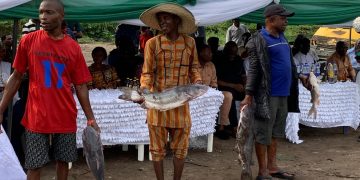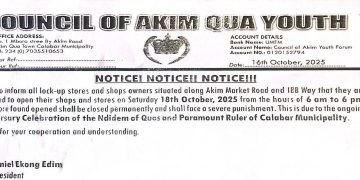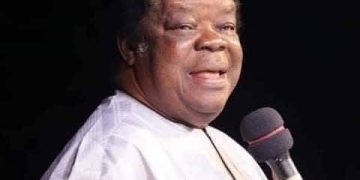By Admin
The Cross River State Government and it counterpart Akwa Ibom State have traded words over the long-standing dispute of the ownership of 76 oil wells, with each side accusing the other of misrepresentation and historical injustice.
At the heart of the controversy is the legitimacy of territorial claims dating back to the aftermath of the Bakassi Peninsula handover to Cameroon. While Akwa Ibom has maintained its stance based on prior Supreme Court judgments, Cross River says it is now armed with fresh federal mapping data to vindicate its claims.
In a statement issued on Monday, the Cross River State Government condemned the position of the Akwa Ibom State Attorney General and Commissioner for Justice, Uko Udom, describing his recent press release as misleading, inaccurate, and a misrepresentation of facts surrounding the oil wells dispute.
The Cross River State Commissioner for Information, Dr. Erasmus Ekpang, who signed the statement, alleged that Akwa Ibom is attempting to distort facts and suppress recent findings that favour Cross River’s claim to a majority of the disputed oil wells.
“The attention of the Cross River State Government has been drawn to a press release issued by Uko Udom, SAN… wherein several misrepresentations and outright falsehood were made against the Government and the good people of Cross River State,” the statement read in part.
According to Cross River, the oil wells in question are located within the western Bakassi region — a portion it maintains was not affected by the 2002 International Court of Justice (ICJ) judgment which ceded the southern part of Bakassi to Cameroon. The state argues that the remaining territory remains Nigerian and under its jurisdiction.
Cross River further claimed that in 2008, following the ICJ ruling and the signing of the Green Tree Agreement, it was excluded from a key boundary retreat held in Kano by the National Boundary Commission (NBC) and the Revenue Mobilization Allocation and Fiscal Commission (RMAFC). It was during that retreat, the state alleges, that the so-called “Technical Option” was adopted in awarding the oil wells to Akwa Ibom.
“Akwa Ibom, Rivers, and Bayelsa States were invited to the retreat Cross River State was not invited because it had no boundary dispute with Akwa Ibom prior to August 2008,” Ekpang said.
The issue resurfaced in March 2024, when Governor Bassey Edet Otu of Cross River raised concerns that several oil wells in OML 114 and 123 fields were within Cross River’s maritime boundary but had yielded no revenue to the state.
This prompted the setting up of a federal inter-agency committee comprising the Office of the Surveyor General of the Federation, the National Boundary Commission, and the Nigerian Upstream Regulatory Commission. Surveyors-General from oil-producing states, including Cross River and Akwa Ibom, were included as observers.
In May 2024, the committee reportedly completed a fresh mapping exercise using the 11th edition of Nigeria’s Administrative Map and a 2004 Well Dichotomy Study. The results, according to Cross River, confirmed that 67 of the 76 oil wells fall within its maritime territory.
“The uncomfortable truth that our sister state seeks to suppress lays bare the injustice Cross River has had to suffer since the Supreme Court’s 2012 decision,” the statement added.
The Cross River Government also revealed that the Presidency has since intervened in the matter, directing both states to carry out stakeholder consultations and report back. However, it expressed concern that Akwa Ibom’s recent public statements indicate unwillingness to commit to a peaceful resolution.
“This Press Statement shall serve as the ONLY RESPONSE on this issue by Cross River State,” the Information Commissioner concluded.
As of the time of filing this report, the Akwa Ibom State Government had yet to issue a formal response to the latest claims made by the Cross River State Government.
























